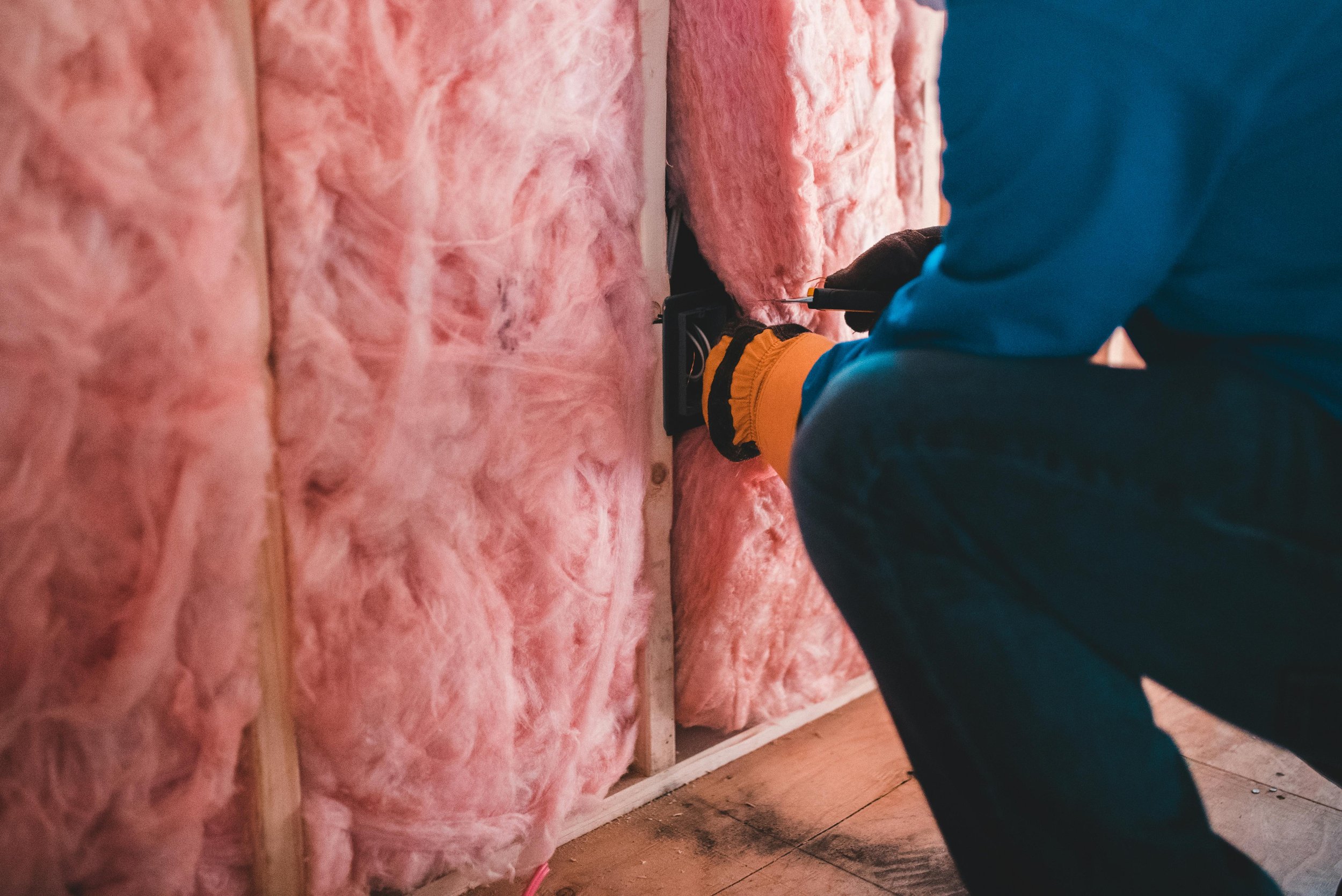15 Essential First-Time Home Buyer Tips for a Smooth Purchase
Embark on the journey of buying your first home with confidence. Discover our insider 15 tips to guide first-time home buyers through the process ensuring a smooth, stress-free experience.
Investigating first home purchase.
Introduction:
Congratulations, fellow adventurer! You're about to set sail on the thrilling voyage of buying your first home. Imagine the excitement of unlocking the front door to a place you can truly call your own. But let's be honest - this journey can feel like uncharted waters, with complexities and jargon lurking beneath the surface. Fret not! Our comprehensive guide, armed with 15 essential tips, will illuminate your path, making your first-time home buying experience as smooth as a perfectly frosted cake. So, are you ready to transform your dream home from a mere blueprint to a breathtaking reality? Let's dive right in and navigate this exciting expedition together! Fear not the unknown, for we shall be your trusty companions, guiding you towards homeownership success and satisfaction. Anchors aweigh!
In This Article
Understanding Your Financial Standing
Knowing Your Must-Haves
Selecting the Right Location
Getting Pre-Approved
Choosing the Right Real Estate Agent
Inspections and Appraisals
Negotiating with Confidence
Understanding Homeowner's Insurance
Learning about Property Taxes
Comprehending the Closing Process
Deciphering the Real Estate Lingo
Being Aware of Additional Costs
Understanding the Resale Value
Knowing When to Walk Away
Enjoying the Journey
1. Understanding Your Financial Standing
Prioritizing your financial well-being is paramount, much like a compass is vital to a sailor's journey. Your credit score serves as a financial pulse, with a strong score granting access to improved mortgage rates and greater opportunities. Before seeking lenders, it's crucial to assess your credit score and take actions to enhance it if needed. Another significant aspect is comprehending your debt-to-income ratio, as a lower ratio ensures a smoother path to homeownership. By understanding and addressing these financial aspects, you can navigate towards your goal of owning a home with confidence.
Analyzing financial health.
2. Knowing Your Must-Haves
Determine your must-haves for your ideal home, whether it's an extra room for a home office or a large backyard for your beloved pet. These non-negotiables play a critical role in the home-buying journey. By listing these essential features, you establish a clear vision that guides you during the house-hunting process. Having your priorities well-defined ensures you won't have to compromise on what truly matters to you. Keep your list readily available as you search for properties, as it will serve as your best guide, leading you towards finding the perfect home that aligns with your needs and desires.
Home features checklist.
3. Selecting the Right Location
In the realm of real estate, the mantra is "location, location, location." When evaluating a property, take into account crucial factors such as its proximity to your workplace, the quality of nearby school districts, safety levels in the area, available amenities, and the potential for growth in the neighborhood. Keep in mind that while a house can be renovated or remodeled, its location remains fixed. Hence, making a wise choice regarding the location is paramount. A desirable location not only enhances your daily convenience and lifestyle but also contributes significantly to the property's long-term value and potential for investment, not to mention making the move easier for removalists. Therefore, approach your decision-making process thoughtfully and prioritize the significance of the location when selecting your ideal home.
Choosing the right location.
4. Getting Pre-Approved
After assessing your financial health, the next crucial step is obtaining a mortgage pre-approval. Consider this pre-approval as your golden ticket to the house hunting party! Having a pre-approval letter from a lender demonstrates to sellers that you are a serious and credible buyer, giving you a competitive edge in the real estate market. This advantage positions you ahead in the race when it comes to making offers on desirable properties. With a pre-approval in hand, you can confidently explore homes within your budget range and be better prepared to act swiftly when you find the perfect match. So, before embarking on your house-hunting journey, secure that pre-approval and increase your chances of landing the home of your dreams.
Mortgage pre-approval ticket.
5. Choosing the Right Real Estate Agent
Similar to how Frodo relied on Gandalf during his quest, having a seasoned real estate agent by your side is crucial on your home buying journey. A competent agent not only possesses a deep understanding of the local market but also acts as a strong advocate for your interests. Choosing the right agent is paramount since they will serve as your anchor, guiding you through the sometimes turbulent process of purchasing a home. A reliable agent can help you navigate challenges, negotiate on your behalf, and ensure that you make well-informed decisions. Their expertise and support will prove invaluable as you embark on this significant life endeavor, making the home buying experience smoother and more rewarding. Take the time to select your agent wisely, for they can play a pivotal role in achieving your homeownership goals.
Trustworthy real estate agent.
6. Inspections and Appraisals
Just as you should never judge a book by its cover, it's essential not to judge a house solely by its fresh coat of paint. Rely on professional Calgary Home Inspections to reveal any concealed problems, such as structural issues, mold, or faulty wiring. These inspections serve as your shields against unforeseen challenges in homeownership. On the other hand, an appraisal provides assurance to both you and your lender that the property's value aligns with its price. Together, these safeguards help you make informed decisions and navigate potential battles that might arise when owning a home. Investing in thorough inspections and appraisals, along with leveraging intelligent document processing use cases, ensures you have a clear understanding of the property's condition and value, giving you confidence in your choice and peace of mind for the future.
Inspecting potential home.
7. Negotiating with Confidence
Mastering the art of negotiation is a powerful asset in your home buying toolkit. Embrace the opportunity to negotiate the price, especially if the home inspection has uncovered any issues. Keep in mind that every dollar saved during negotiations is equivalent to earning extra income. Be confident and assertive in expressing your concerns and discussing possible solutions with the seller. Focus on the facts revealed by the inspection report to support your negotiation efforts. With careful negotiation, you may secure a better deal, allowing you to save money and make a sound investment. Just remember that a skillful negotiation can lead to a more favorable outcome and a satisfying home buying experience.
Negotiating home purchase.
8. Understanding Homeowner's Insurance
In the realm of home buying, homeowners insurance serves as your safety net, providing protection for your property against damages and offering you financial security. While understanding the intricacies of the policy might seem as daunting as deciphering the Da Vinci Code, it is an indispensable step that you cannot afford to overlook. Familiarize yourself with the policy details, seeking clarification if needed, to ensure you have comprehensive coverage that meets your specific needs. The right insurance policy will grant you peace of mind, shielding you from potential financial hardships in the event of unforeseen circumstances. Prioritize this aspect of your home buying journey to safeguard your investment and future.
Homeowner's insurance safety net.
9. Learning about Property Taxes
Owning property, much like playing Monopoly, entails dealing with various taxes that vary based on the property's location and value. It is essential to factor in these ongoing expenses into your budget. Failing to do so may result in unpleasant surprises, particularly when it comes to tax-related matters. Property taxes are a continuous financial commitment that you must be prepared for as a homeowner. Understanding the tax implications associated with your property will allow you to plan your finances more effectively and avoid any unexpected financial burdens. So, just as you strategize in Monopoly, plan ahead and consider these taxes to ensure a smoother and more financially stable homeownership experience.
Understanding property taxes.
10. Comprehending the Closing Process
Congratulations, you're approaching the finish line! The closing process marks the final step in your home buying journey, where you'll sign all the necessary legal documents, make your down payment and cover closing costs, ultimately obtaining the keys to your new kingdom. This moment is as exhilarating as the climactic scene in your favorite thriller! With the paperwork completed and financial obligations settled, you're about to achieve the long-awaited goal of homeownership. Embrace the excitement and joy as you step into this new chapter of your life, ready to create lasting memories in your very own home. Cherish this momentous occasion and relish in the sense of accomplishment that comes with owning a place you can truly call your own.
Closing the home purchase.
11. Deciphering the Real Estate Lingo
Feeling lost in the world of real estate jargon? No need to worry! Decoding these terms is akin to learning a new language, but soon you'll speak it fluently. Let this be your passport to the realm of homeownership. Terms like escrow, contingencies, and PMI might sound unfamiliar now, but with time and guidance, you'll understand their meanings and significance. Familiarizing yourself with these concepts is essential for making informed decisions during the home buying process. Embrace the learning journey, and before you know it, you'll be confidently navigating the intricacies of real estate like a seasoned pro. So, don't be discouraged; instead, view it as an exciting opportunity to expand your knowledge and embark on the path to becoming a knowledgeable and successful homeowner.
Decoding real estate jargon.
12. Being Aware of Additional Costs
Indeed, when buying a house, the price of the property itself might be the most significant portion of the expenses, but it's crucial not to overlook the hidden costs that lurk beneath the surface, much like hidden icebergs. Additional expenses like home repairs, moving costs, and routine maintenance can add up quickly and impact your budget significantly. To avoid your financial ship from sinking, ensure you account for these expenses during your planning process. Consider setting aside a contingency fund to cover unexpected repairs or maintenance needs. Being prepared for these hidden costs will provide you with financial stability and peace of mind as a homeowner, allowing you to navigate your homeownership journey smoothly and confidently.
Accounting for additional costs.
13. Understanding the Resale Value
When purchasing a home, most people don't contemplate selling it in the future. However, life's unpredictability may lead to changes. Considering the potential resale value of your property provides a safety net and tranquility. Beyond being a living space, a home serves as an investment. Understanding factors like location, neighborhood trends, and property features can inform your decision-making during the purchase, ensuring a property with long-term value. By viewing your home as an investment, you can build equity and potentially benefit from appreciation over time. This mindset also encourages responsible upkeep and improvements that can enhance the property's worth. While selling might not be your current plan, being mindful of your home's resale value fosters a proactive approach to homeownership, offering flexibility to adapt to life's uncertainties while maintaining a sound financial position.
Understanding home's resale value.
14. Knowing When to Walk Away
Occasionally, even with an enchanting view, the lighthouse may prove too distant. Recognizing when to step back from a deal, whether due to excessive pricing, unsatisfactory inspection outcomes, or unfavorable contract conditions, is an often underestimated quality. Always bear in mind that there will be other opportunities, other lighthouses, and other scenic vistas to explore. Being willing to walk away demonstrates wisdom in the home buying process. By prioritizing prudence and patience, you can avoid potential regrets and financial burdens. Keep searching for the perfect lighthouse, the ideal home that offers both allure and suitability. Trust your instincts, stay discerning, and embrace the prospect of finding the right abode that meets your desires and aligns with your budget.
Choosing to walk away.
15. Enjoying the Journey
Above all, savor the journey! Purchasing your first home is an adventure brimming with anticipation, excitement, and a touch of nerve-wracking moments. Embrace and cherish these experiences, for they'll become the tales you share when you're comfortably settled in your dream home. The process might be a rollercoaster, but each twist and turn adds to the uniqueness of your homeownership story. Relish the ups and downs, the challenges, and the triumphs. These memories will be woven into the fabric of your new home, creating a tapestry of cherished moments. As you create a space that reflects your dreams and aspirations, recall the excitement of this journey and the joy of achieving your homeownership goals. So, enjoy every step, from house hunting to closing, as it leads you to the threshold of your perfect home.
Enjoying the home buying journey.
Conclusion
Starting your first home buying journey can feel daunting, but armed with the right knowledge and preparation, you can navigate the process like a pro. The 15 tips outlined in this guide serve as your keys to unlock a smooth and successful home purchase. Keep in mind that every journey begins with a single step. So, take that initial stride with confidence, and soon enough, you'll find yourself standing on the doorstep of your dream home. Embrace the adventure, stay patient, and trust in your abilities to make informed decisions. With determination and a clear vision of what you want, you'll be well on your way to turning the dream of homeownership into a joyful reality.
Frequently Asked Questions
How do I know if I'm ready to buy a house?
You're ready when you have a stable income, good credit, and enough savings for a down payment and additional costs. Also, you should be ready to stay in the same place for a few years.
What's the first step in buying a house?
The first step is understanding your financial standing, including your credit score and debt-to-income ratio.
How do I choose the right real estate agent?
Look for someone experienced, familiar with your desired area, and who understands your specific needs and budget.
How much should I have saved before buying a house?
Generally, it's recommended to have a down payment of 20% of the home price, though there are loan programs that require less. Also, consider additional costs such as closing costs, moving expenses, and home repairs.
How important is home inspection?
A home inspection is crucial as it can uncover potential issues such as structural problems, leaks, or electrical faults. It can save you from expensive repairs in the future.













































